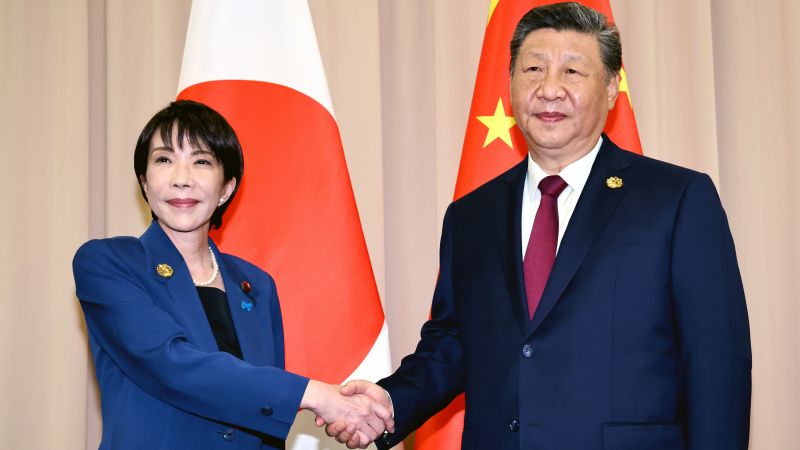Weeks into the job, Japan’s new leader has come face-to-face with what it means to cross China’s red line on Taiwan.
In the days since Sanae Takaichi suggested her country could respond militarily if China were to move to take control of Taiwan by force, Beijing has pulled out its economic pressure playbook: warning its citizens against travel and study there, suggesting there’ll be no market in China for Japan’s seafood exports, and unleashing a wave of wall-to-wall nationalist fervor pointed at the prime minister.
The furor appears carefully calibrated to send a warning to Japan – and other countries in the region – of what could happen if they even consider taking a stance at odds with China on Taiwan, the self-ruled democratic island that Beijing claims as its own territory.
But the spat, which shows no sign of abating roughly two weeks on, also reveals something else: Beijing’s deep-seated concerns about the potential for changing military postures in Asia – as US allies ramp up defense spending and coordination in the face of its own rising military might.
No other country piques those concerns like Japan, whose Imperial Army in the 20th century invaded, occupied and waged atrocities on China and, decades earlier, colonized Taiwan – key pain points in China’s so-called “century of humiliation” at the hands of foreign powers.
Continue reading the complete article on the original source



